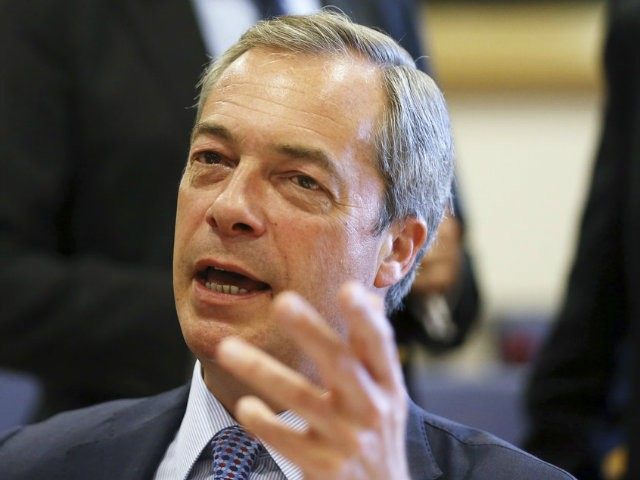Yesterday, Nigel Farage hit out at such delights of modern multiculturalism as female genital mutilation, sharia courts and Pakistani rape gangs, suggesting that what western societies need is “interculturalism” to protect our Judeo-Christian heritage. By invoking God as a moral good, he is being unfashionable but inescapably right.
The militant tendency in atheism has, mirabile dictu, had its day: with Christopher Hitchens’s sad passing and the gradual descent into madness so evident in Richard Dawkins’s social media activity, we can say with a reasonable degree of certainty that making an obnoxious fuss about not believing in God is, like, so over.
That opens up room in the public square for powerful pro-faith arguments to emerge once again, such as this provocative but, I think, fairly unanswerable line of reasoning from writers Pascal Emmanuel-Gobry and Michael Dougherty. The liberalisation of birth control has been a disaster for society, these authors contend.
“Today’s injunctions against birth control were re-affirmed in a 1968 document by Pope Paul VI called Humanae Vitae,” Gobry and Dougherty write. “He warned of four results if the widespread use of contraceptives was accepted: general lowering of moral standards; a rise in infidelity, and illegitimacy; the reduction of women to objects used to satisfy men, and government coercion in reproductive matters. Does that sound familiar?”
The penultimate point in that list will sting liberals the most: more than any other factor in society, the free-for-all around birth control has contributed to the objectification of women as sexual objects. Free from the consequences of casual sex, some young women have become just as sexually predatory as men, and allowed themselves to be seen as sources of pleasure instead of partners in life, love and faith.
You might think that a terribly old-fashioned view. But add to it the bizarre and self-destructive war on men currently being fought by the European and American media and you begin to see what I think Farage is getting at: when you strike out structure, authority, and faith from society, everything goes–perhaps literally–to Hell.
We should be less reticent to celebrate the glories of our civilisation and its culture, which is inextricably entwined with Christianity. We should be proud of the architectural and artistic heights to which the Catholic church in particular has taken us. Compare St Peter’s Basilica to the bland pointlessness of a Damien Hirst or Tracy Emin–not mere celebrities but venerated figures in the contemporary art world–and you start to understand how soullessness translates into worthlessness.
You can argue all you like about the existence of God. But I’d ask a simple question: how has the loss of faith and our crisis of confidence in our own virtues worked out for us? Are we any happier? Richer? Any more free? I venture not–at least, not as a result of atheism or the destruction of confidence in the church.
I don’t know what Nigel Farage meant by “interculturalism.” Wikipedia tells me it differs from multiculturalism in that it challenges the segregation of different communities. That can only be a good thing in our increasingly islamified city centres. But whatever our views on “integration” of various faiths and cultures we should not lose sight of the fact that some cultures are indisputably better than others, and that ours–for all its faults–is the best.
If we can be less British about saying so, while still being respectful of people with other backgrounds who wish to live alongside us–while, of course, insisting on a few basic courtesies from them–then we will be on the right path. In this, as in so many things, Nigel Farage is saying what many ordinary people are thinking. That is why so many of them are going to vote for him at the next election.
Follow Milo Yiannopoulos on Twitter.

COMMENTS
Please let us know if you're having issues with commenting.